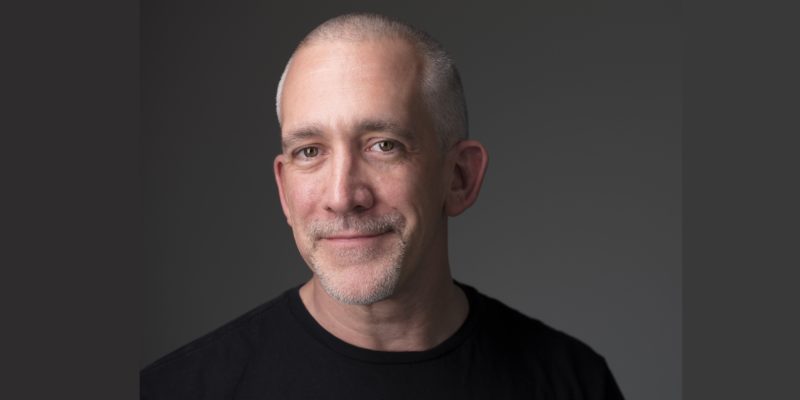Devoted composer and creative Brian Field has crafted a uniquely powerful series of movements for his latest work.
The boldly confronting project Three Passions For Our Tortured Planet comprises solo piano compositions, exploring and expressively demonstrating the sheer gravity of our current situation amidst the climate crisis.
We were grateful for the opportunity to interview Brian about the release, to find out more about what drove his creative process in this direction, and what we can collectively do to prevent further catastrophes as a planet. Here’s the conversation in full.
* * *
Hi Brian, great to finally chat with you! Congrats for the latest project. For those new to your work – how would you describe your approach to making music?
Stylistically, I’m eclectic in composition style, quite a hybrid. I’ve often described my work as a fusion of lyricism and driving rhythm combining elements of post-romanticism, minimalism and jazz, and have written for concert settings as well as dance, television and ambient instalments.
From a creative point of view – I look on composition as a craft, something I practice on a daily basis.
Tell us about Three Passions for our Tortured Planet – what inspired you to take on a conceptual project of this depth at this time in your life and career?
With the increasing build-up of greenhouse gases across the planet, we are threatened with a climate crisis whose long-term impact is greater than world wars, political unrest or the coronavirus pandemic – it is an urgent time for how we exist on this planet.
Sadly, the importance and focus on this problem falls out of favor in most mainstream news media and therefore fades from public consciousness until there are critical moments in time—a ravaging wildfire here, a drought there—and then a day later the media attention drifts elsewhere.
“The purpose of the project is to create an ongoing, global cadence of awareness to keep this issue top of mind and spur subsequent action.”
Why these three particular focuses / movements?
I chose to focus in on areas of climate change that are particularly visible and impactful. The first of the three movements (“…fire…”) is a reflection on the forest fires raging across California and the American West on a recurring, and increasingly alarming basis. The work starts with a “spark,” that flickers and quickly spreads, growing more complicated. The fire begins to rage loudly, and across register, building to a climax which eventually becomes more controlled, as it burns itself out and dies.
The second movement (“…glaciers…”) is a distant, stately movement that depicts the enormous ices on earth’s poles. These slow, ponderous moments are sporadically interrupted by rapidly falling, thundering episodes, depicting the shearing of the glacial ice with ever-warming temperatures.
“It is alarming to say the least to observe the rapidly shrinking size of large glaciers around the world which is elevating our sea levels and causing a host of other issues, including costal flooding.”
The third movement of the set is titled “…winds…”. This virtuosic finale begins with running winds that become increasingly intense and hurricane/typhoon-like in its destructiveness before dissipating into a barely noticeable breeze.
Why did you choose solo piano for this work?
I chose the piano as the highlighted instrument for this project for a couple of reasons, firstly, because I’m a pianist! I also wanted to be able to capitalize on the wide register of the piano—the very high and very low pitches of the instrument—in some of the movements for greater dramatic effect, matching the moods of the movements.
Finally, I wanted to keep this project to an instrumental solo as it’s logistically easier to work into concert programs when one can be less concerned about finding rehearsal time with other ensemble members.
You’ve captured the urgency and even a sense of terror quite wonderfully with this project, but also some essential hints of quiet, perhaps hope. What were the main feelings you wanted to present listeners with?
I intended to create a sense of urgency with these pieces—the climate crisis we are living in right now is very real—and imbuing feelings of agitation and angst within it are intentional and appropriate. This is part of the “passion” reflected in the collection’s title.
The earth is also reacting “passionately” to what is happening, convulsing one might say—and I think of this somewhat allegorically to the Passion on the Mount as well: we and the planet are being tested and pulled, emotionally tried through this crisis.
But it is not hopeless; we can and must change to prevent calamity. This is why each of the movements ends somewhat quietly, rather than in a thundering bang—the fire burns out, the glaciers continue on, and the winds move from tumultuous storming to a barely noticeable breeze.

How did you come to collaborate with Kay Kyung Eun Kim, and what did the pairing ultimately help bring out from the music?
Kay is a Juilliard School graduate, as am I. We connected in late 2019 around this project and she was very enthusiastic about premiering the piece in a forthcoming recital of hers at Steinway Hall in Seoul.
It’s been a wonderful, long-distance collaboration through the wonders of technology where we can speak, exchange music files, feedback, etc.
Kay is a fantastic pianist who performs both traditional and contemporary repertoire, and has a refined pianistic sensibility that brings a terrific interpretation to this work.
What are your hopes for the project, and what are the main changes you want to see our society implement in the coming years?
“It is my hope that this work will play a role in continuing to bring further awareness and dialog around climate change, and our need to act quickly – to reduce our reliance on fossil fuels, embrace sustainability in its many forms, including the reduction of our personal carbon footprint.”
Is there anything else we should know?
Just that the call for participating in this project is open on a rolling basis – if you’re a pianist who wishes to join in and help spread the word, you can download the score and demo from the project website.
Feel free to program the work in recitals, record it – even if just a movement of the work – and load it up on social media.
Amplification of the mission and message is what the initiative is all about. Thank you!
* * *
Check out Brian Field on Facebook or his Website.

